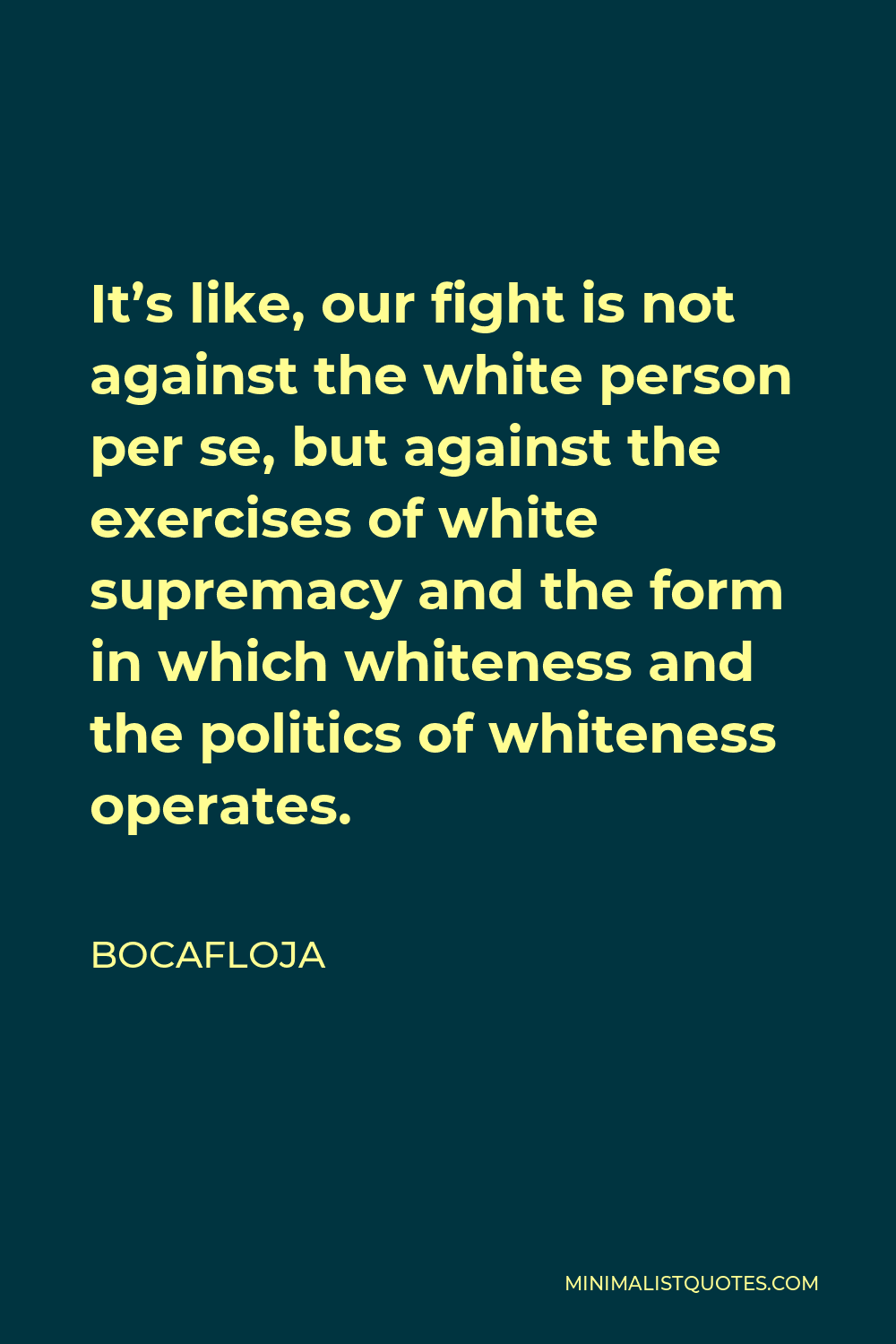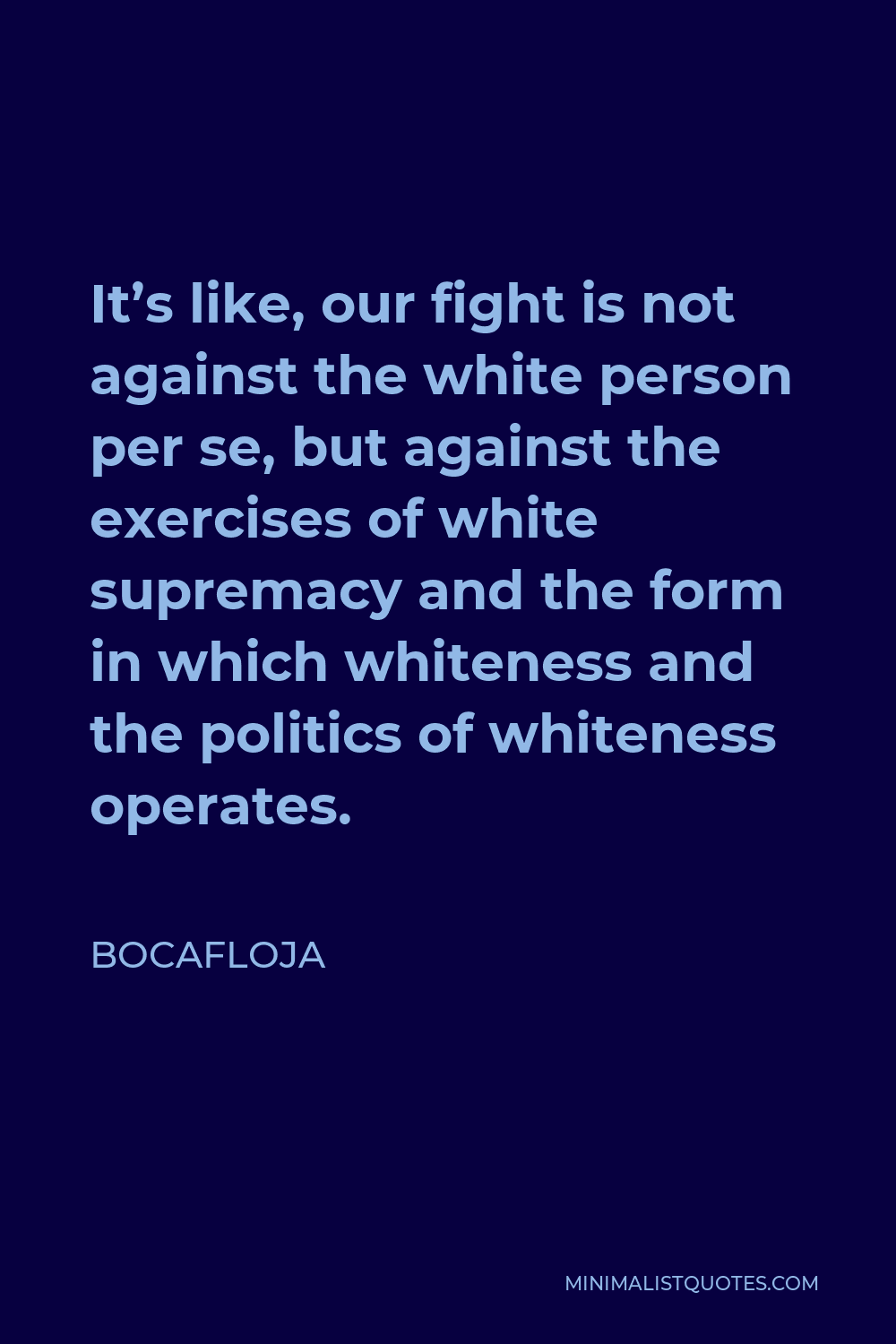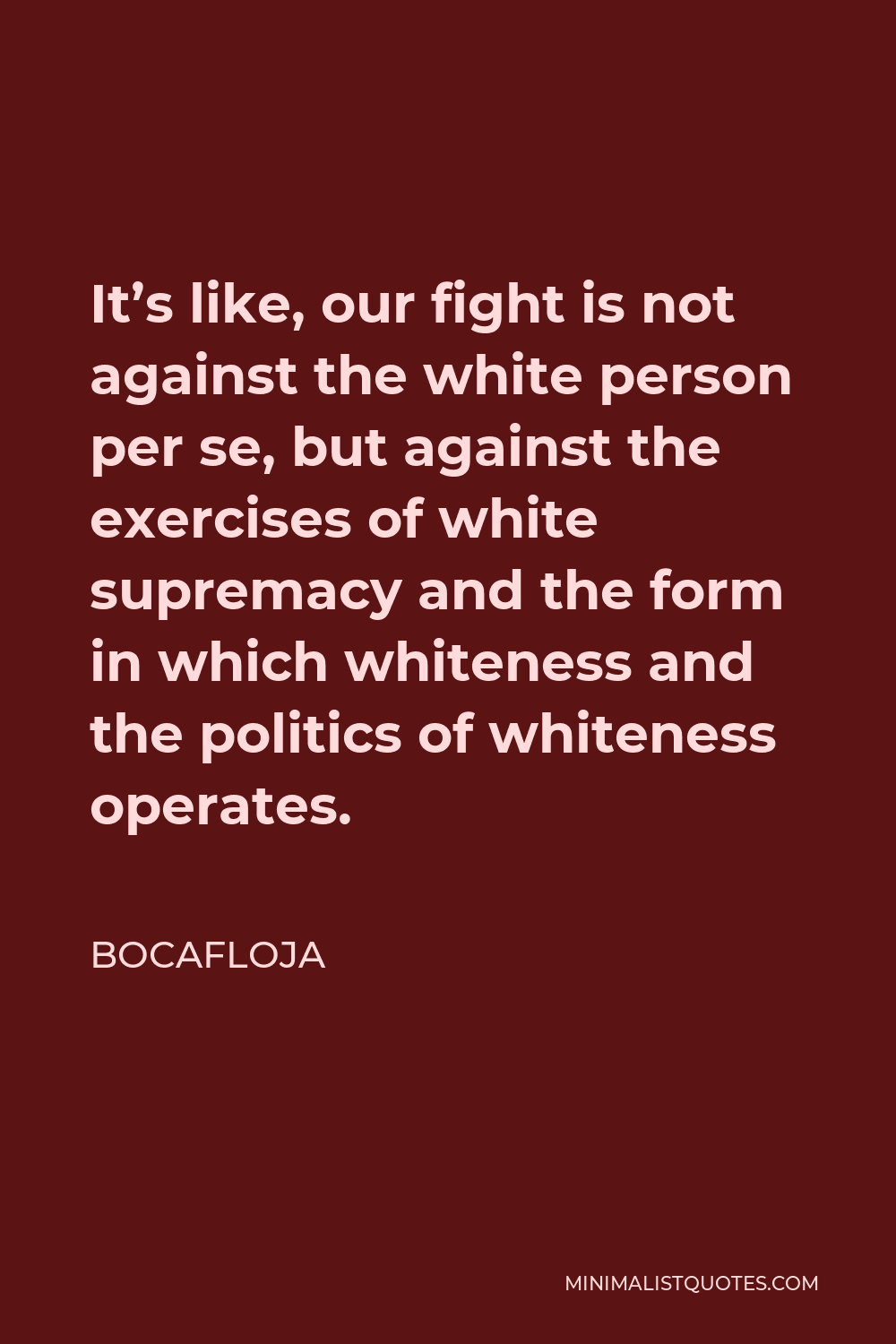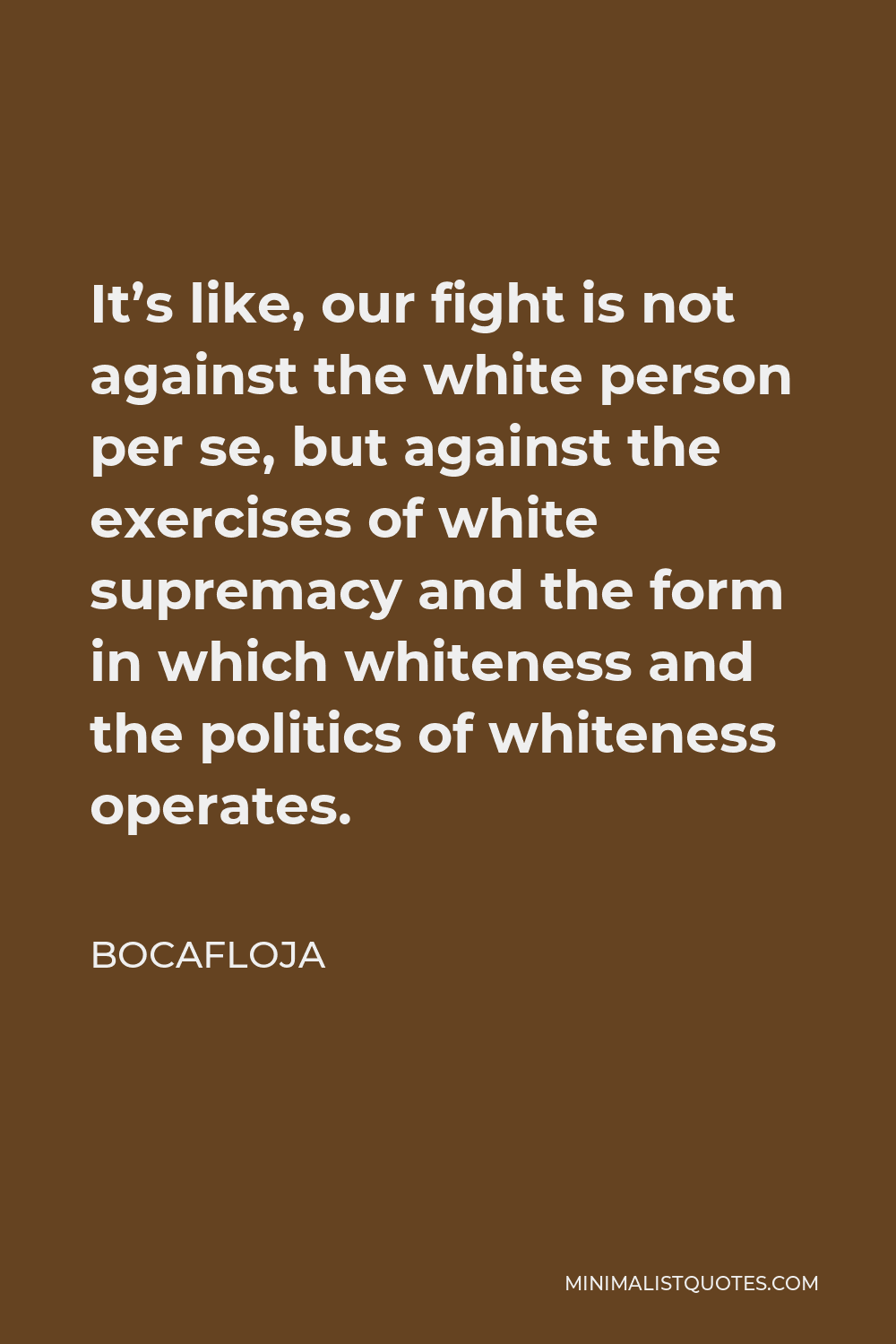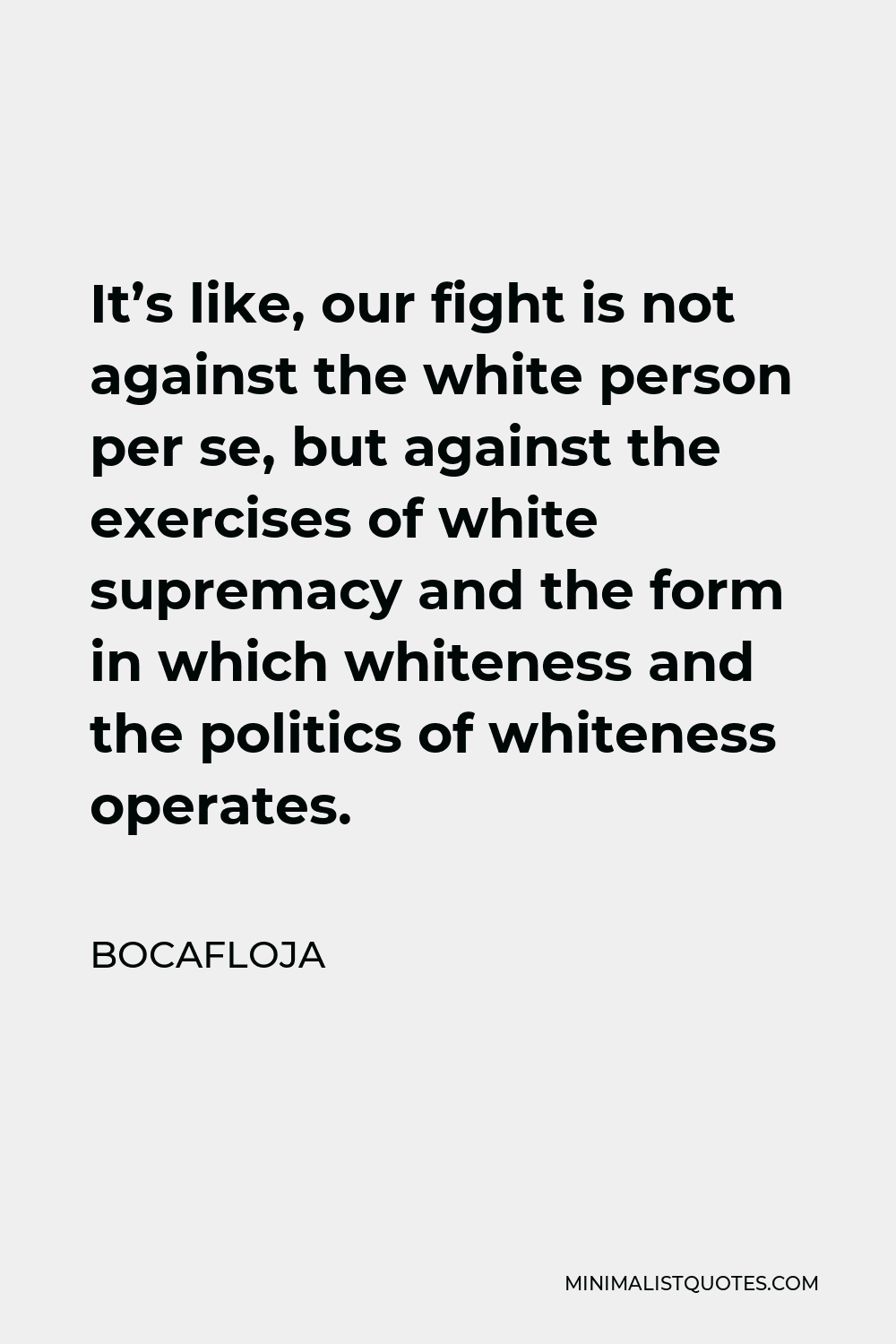MTV and the culture industry never are talking about community relevance, hood organization, they aren’t talking about ethical codes, they aren’t talking about forms of political organization, they don’t speak about codes inside the jails. What they talk about are superficial things.
BOCAFLOJAIt’s like, our fight is not against the white person per se, but against the exercises of white supremacy and the form in which whiteness and the politics of whiteness operates.
More Bocafloja Quotes
-





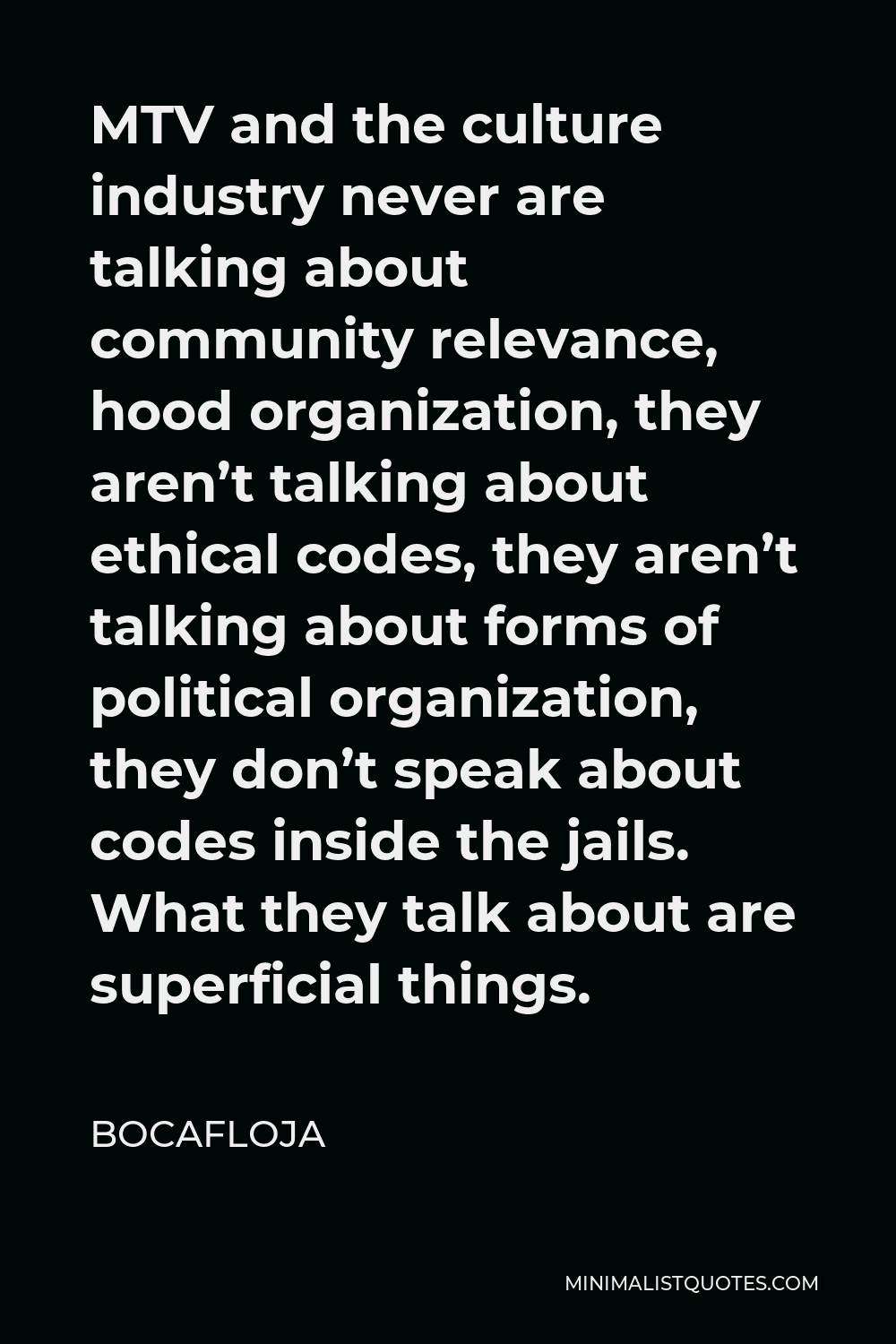
-





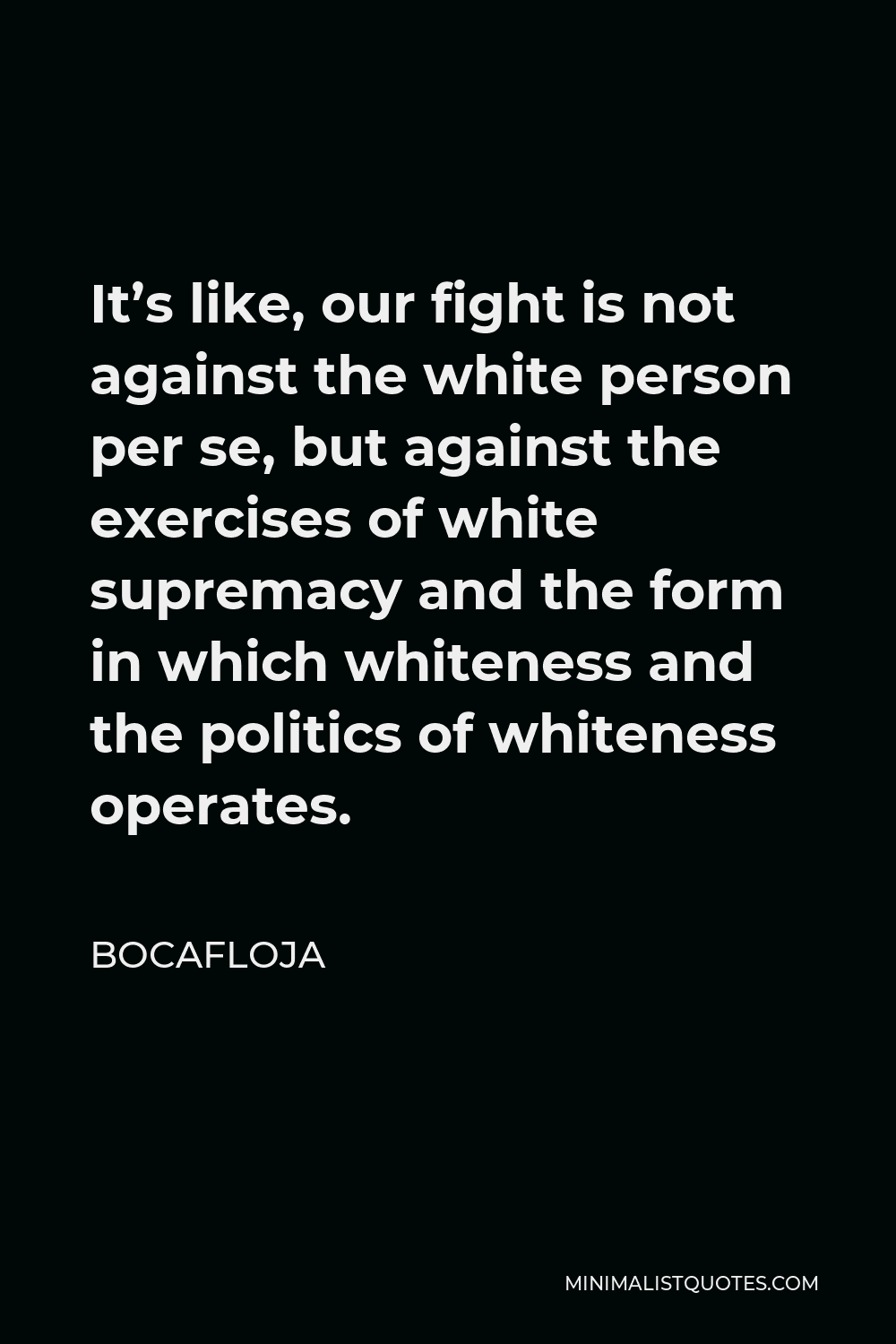
It’s like, our fight is not against the white person per se, but against the exercises of white supremacy and the form in which whiteness and the politics of whiteness operates.
BOCAFLOJA -





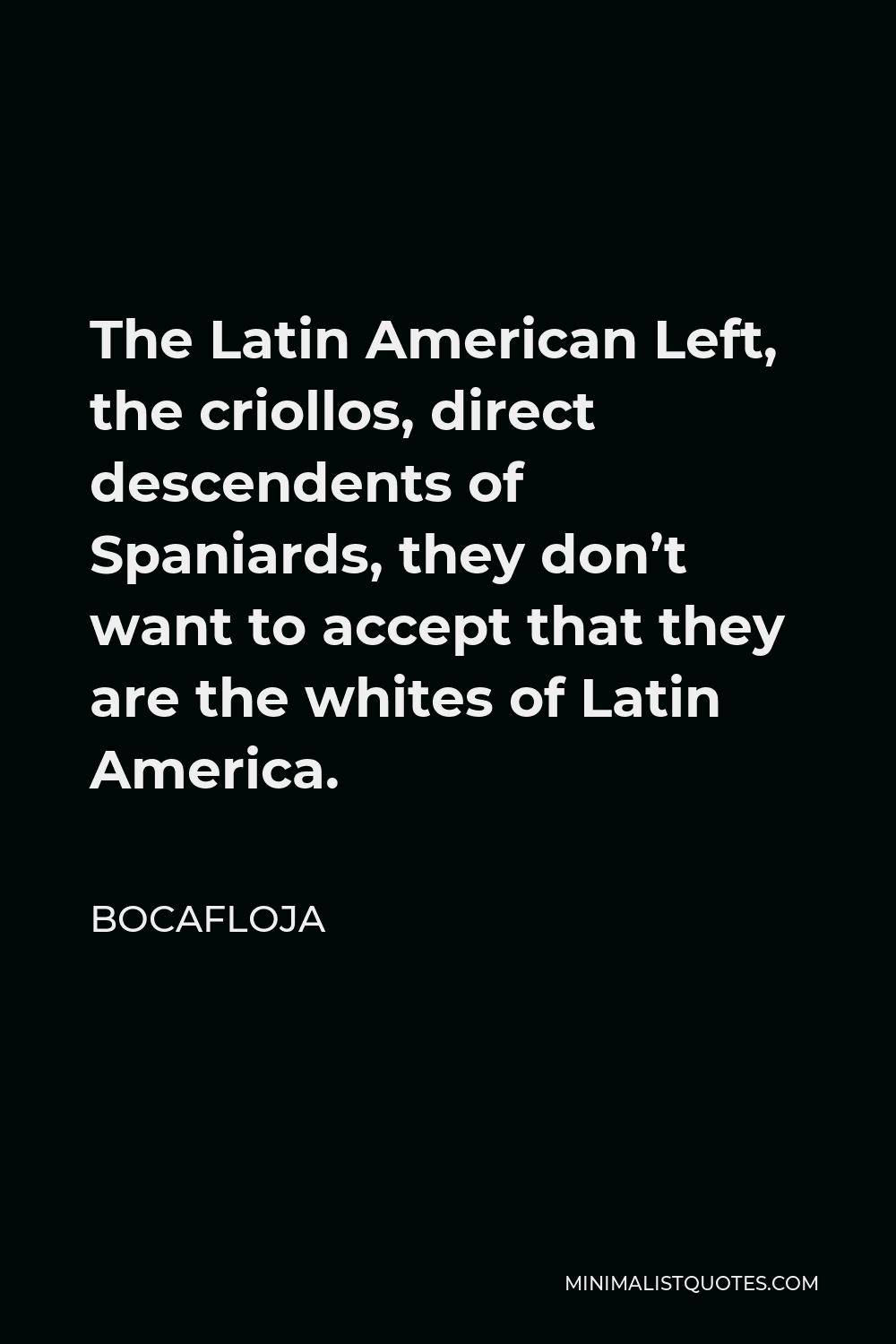
The Latin American Left, the criollos, direct descendents of Spaniards, they don’t want to accept that they are the whites of Latin America.
BOCAFLOJA -





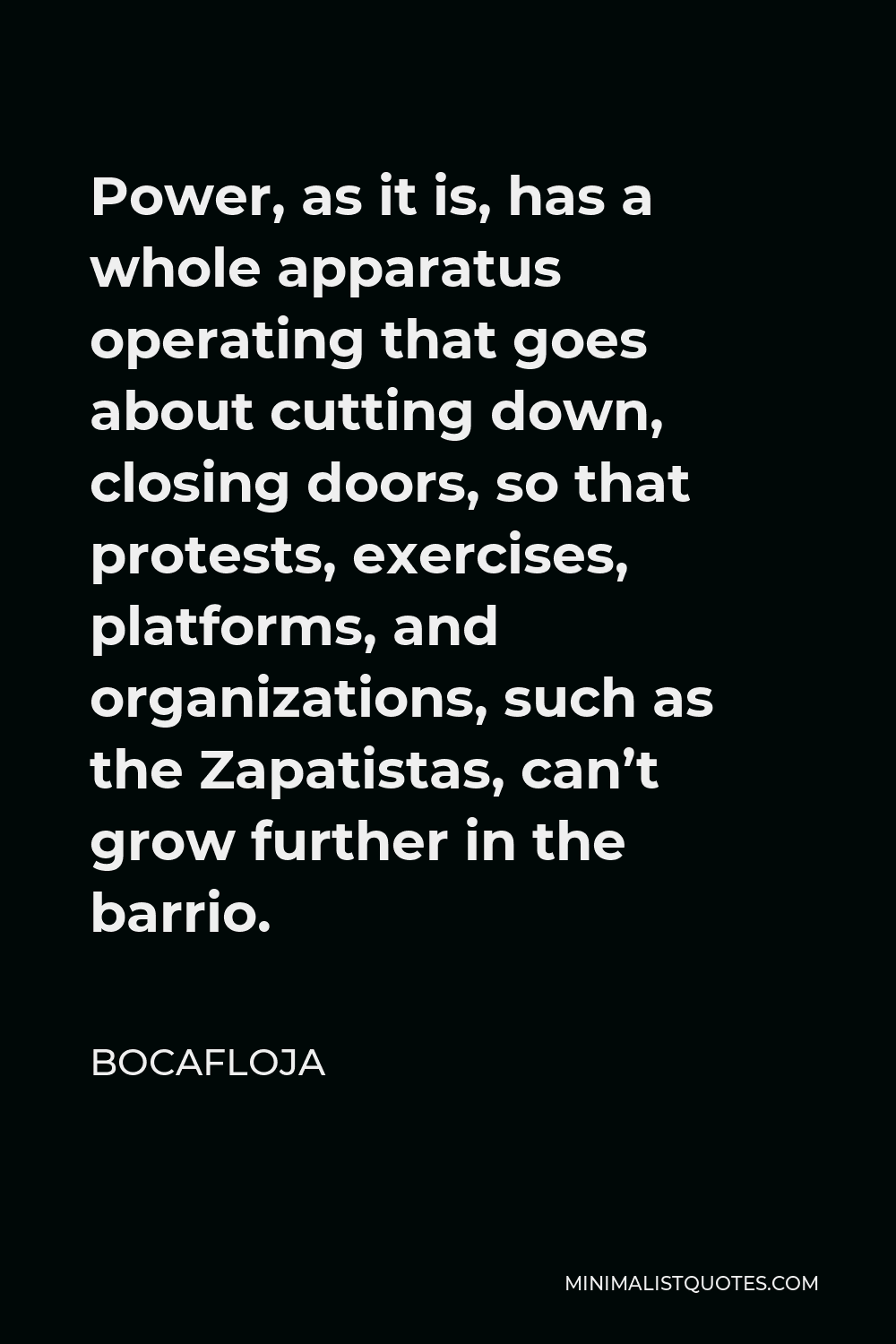
Power, as it is, has a whole apparatus operating that goes about cutting down, closing doors, so that protests, exercises, platforms, and organizations, such as the Zapatistas, can’t grow further in the barrio.
BOCAFLOJA -





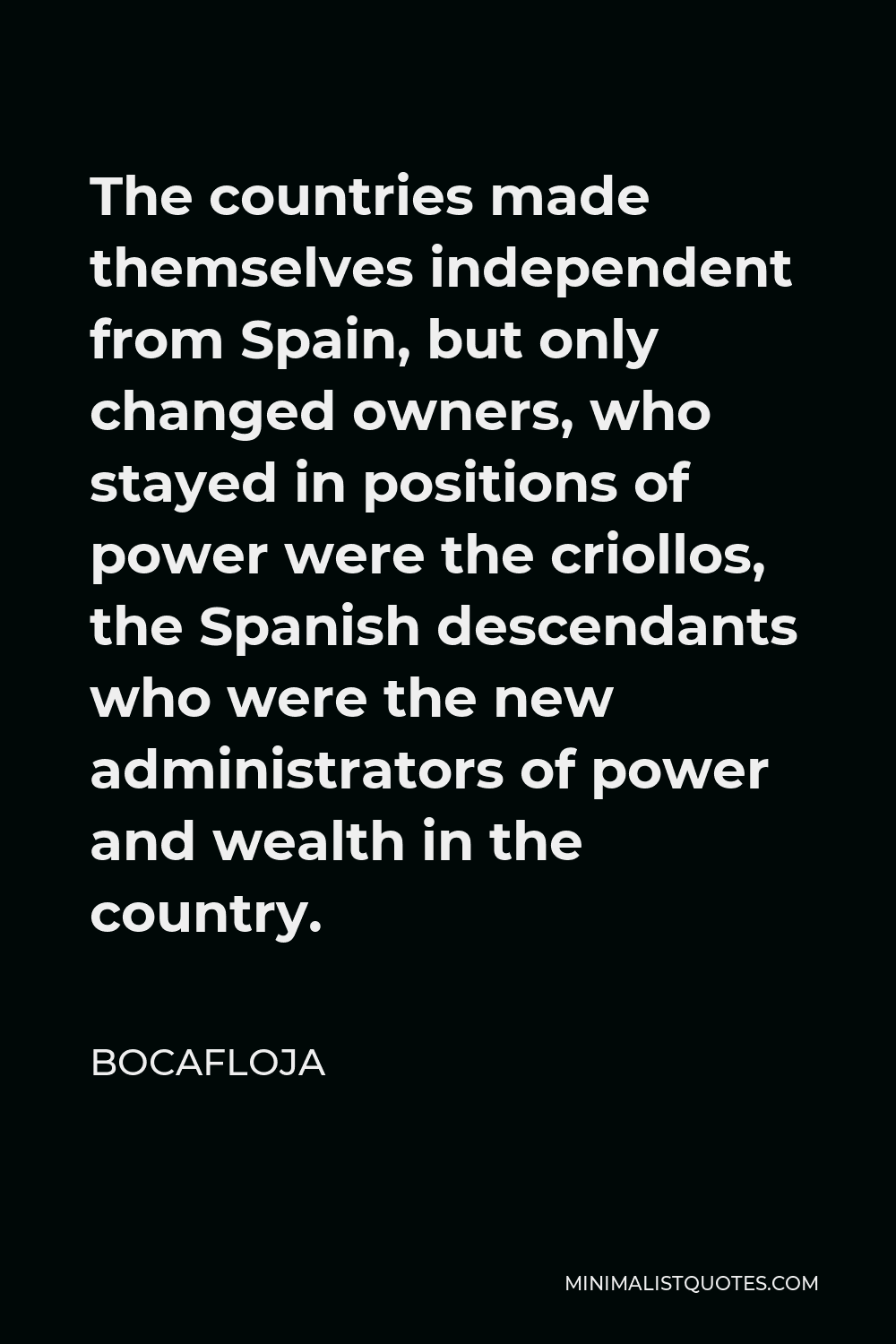
The countries made themselves independent from Spain, but only changed owners, who stayed in positions of power were the criollos, the Spanish descendants who were the new administrators of power and wealth in the country.
BOCAFLOJA -





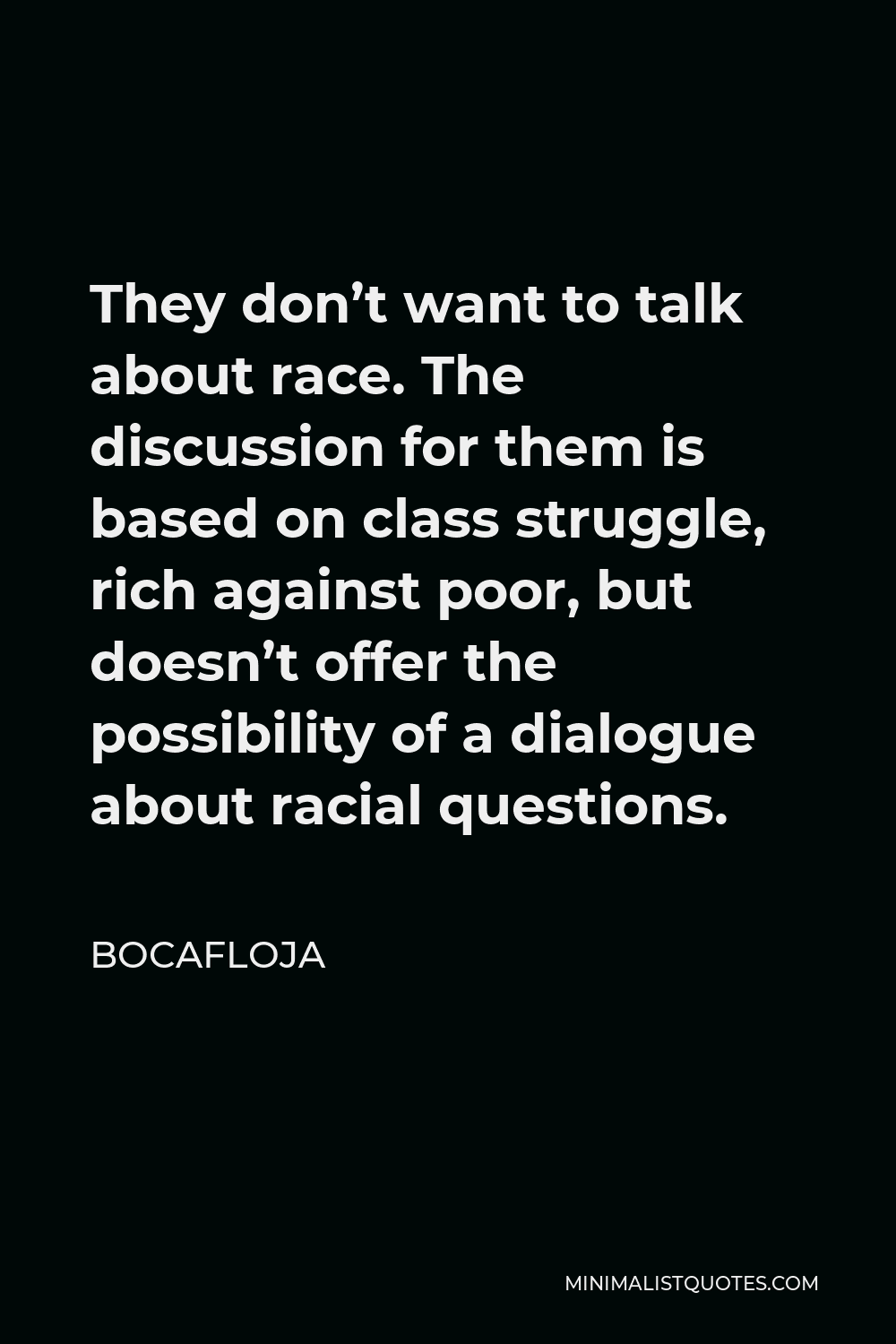
They don’t want to talk about race. The discussion for them is based on class struggle, rich against poor, but doesn’t offer the possibility of a dialogue about racial questions.
BOCAFLOJA -





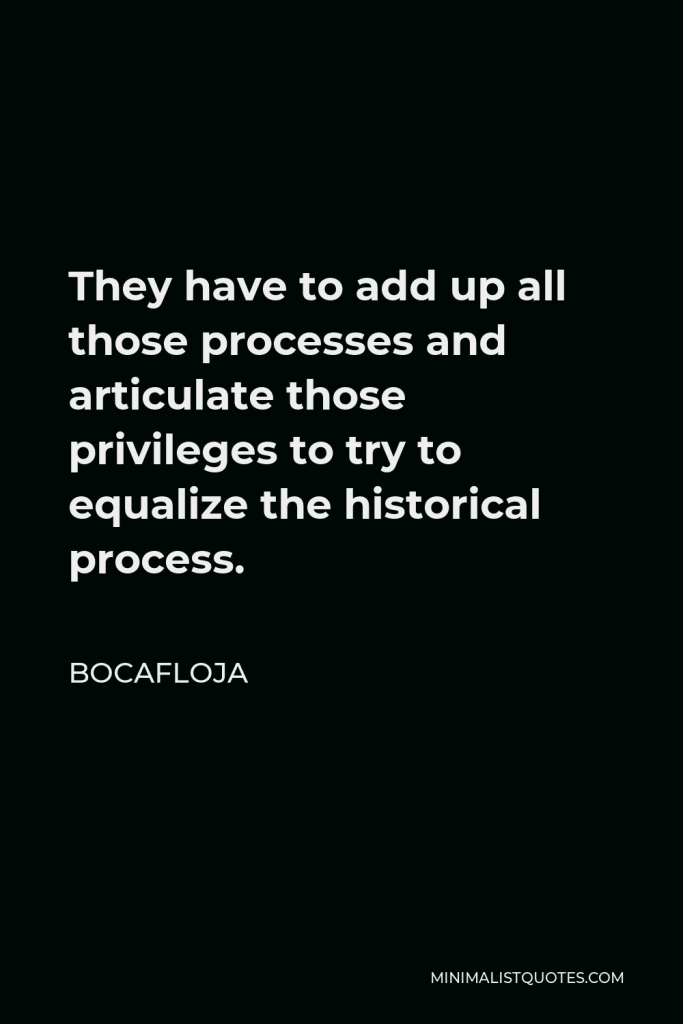

They have to add up all those processes and articulate those privileges to try to equalize the historical process.
BOCAFLOJA -





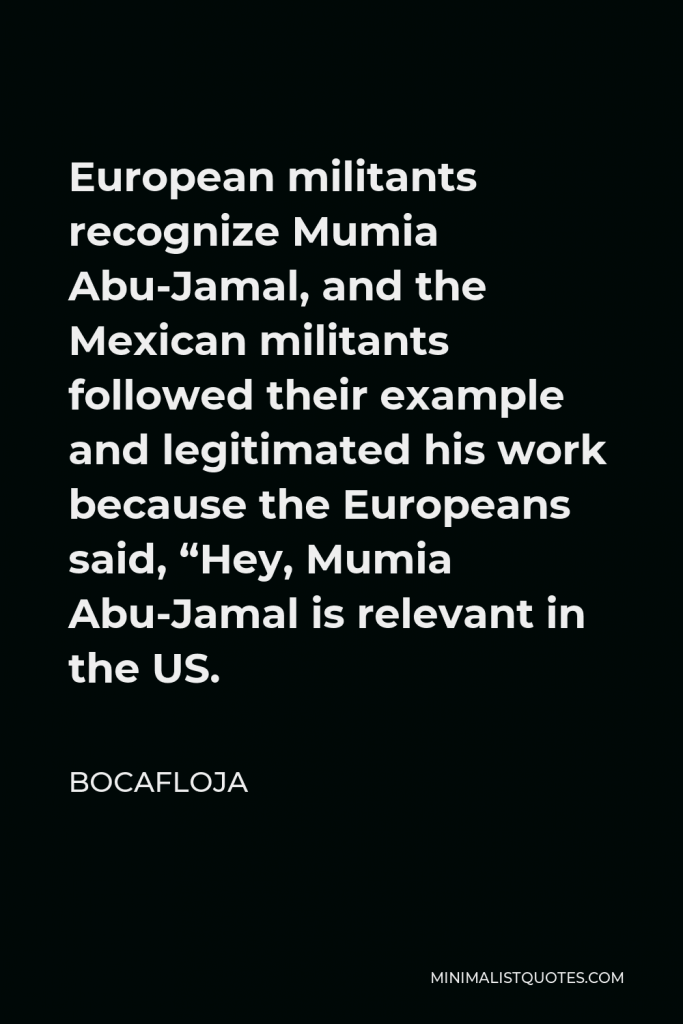

European militants recognize Mumia Abu-Jamal, and the Mexican militants followed their example and legitimated his work because the Europeans said, “Hey, Mumia Abu-Jamal is relevant in the US.
BOCAFLOJA -





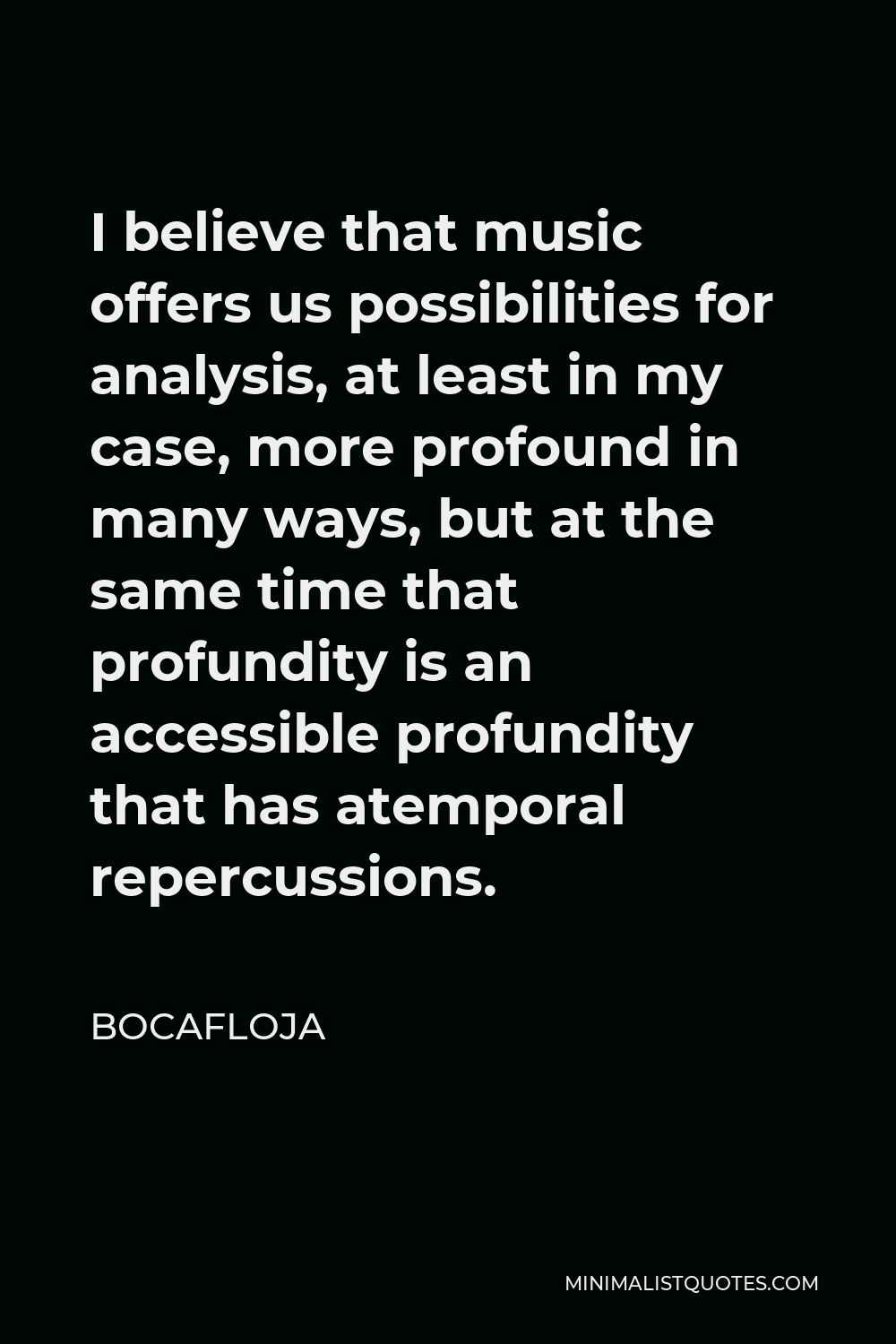
I believe that music offers us possibilities for analysis, at least in my case, more profound in many ways, but at the same time that profundity is an accessible profundity that has atemporal repercussions.
BOCAFLOJA -





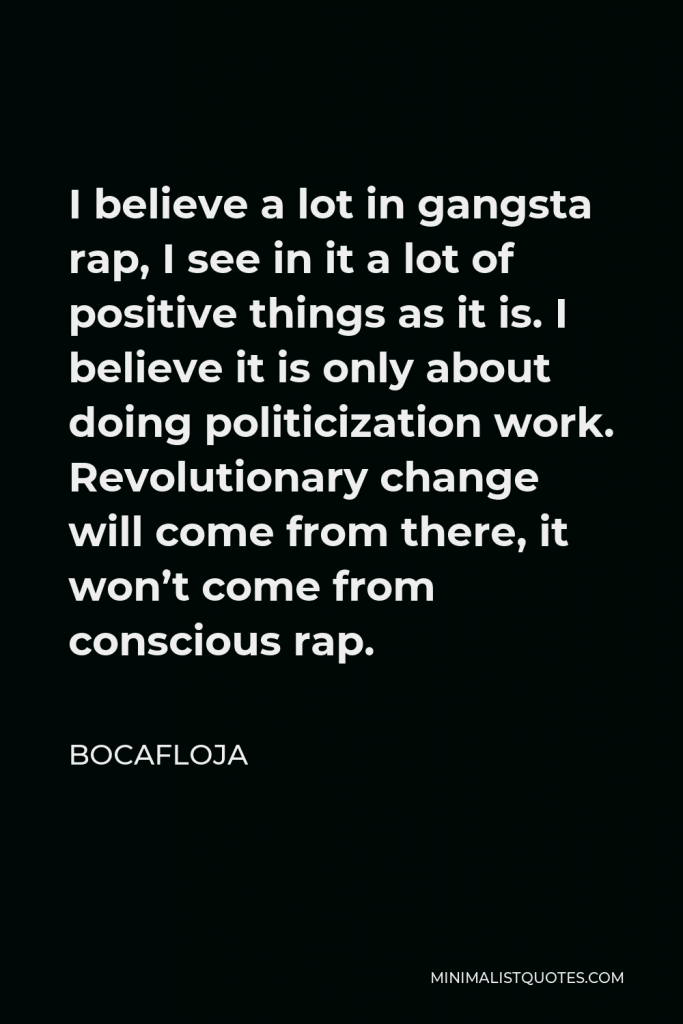

I believe a lot in gangsta rap, I see in it a lot of positive things as it is. I believe it is only about doing politicization work. Revolutionary change will come from there, it won’t come from conscious rap.
BOCAFLOJA -





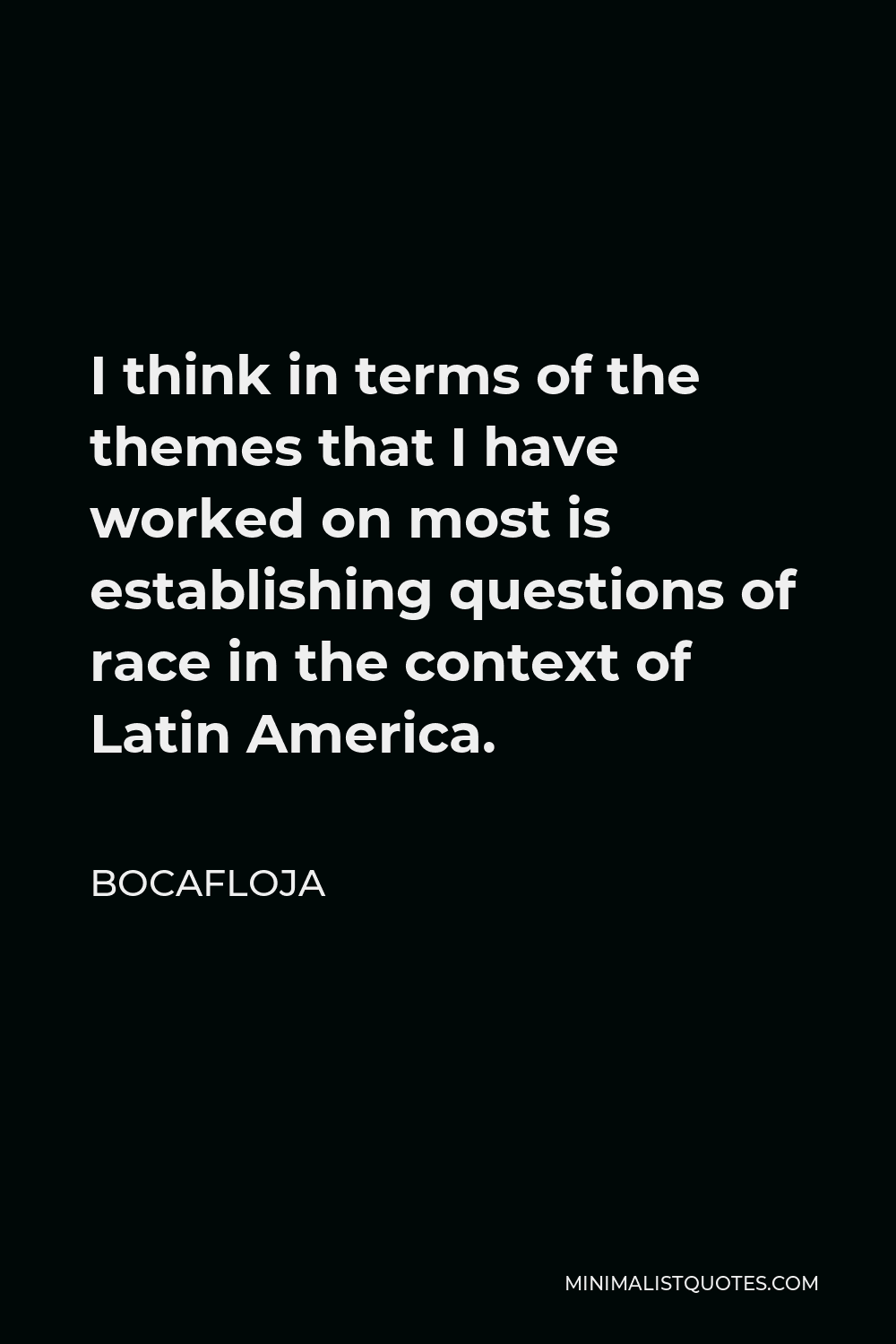
I think in terms of the themes that I have worked on most is establishing questions of race in the context of Latin America.
BOCAFLOJA -





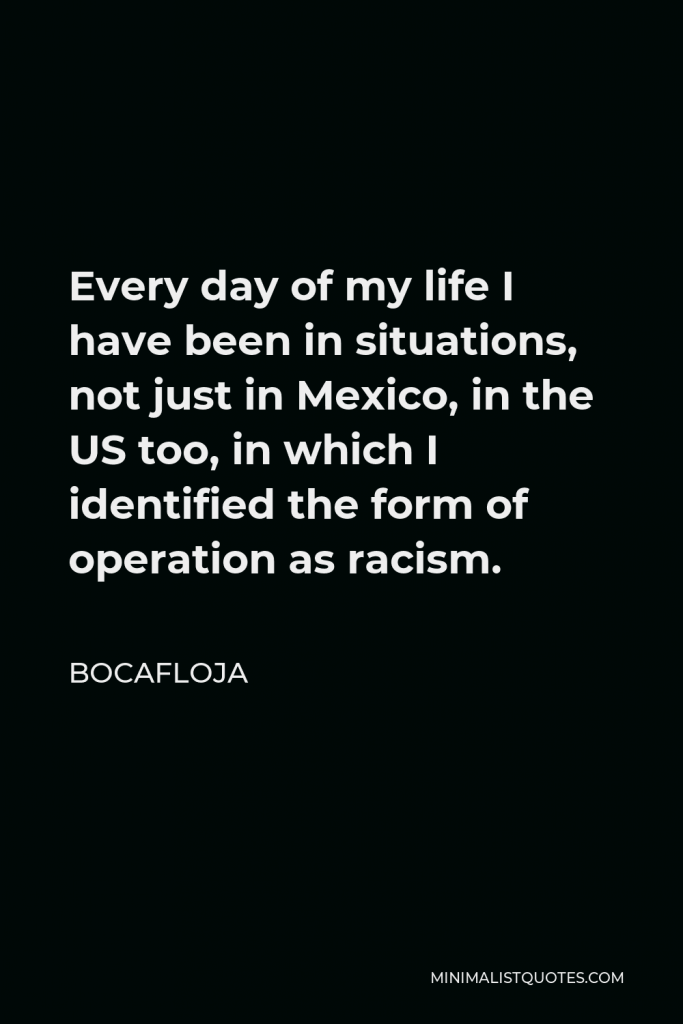

Every day of my life I have been in situations, not just in Mexico, in the US too, in which I identified the form of operation as racism.
BOCAFLOJA -





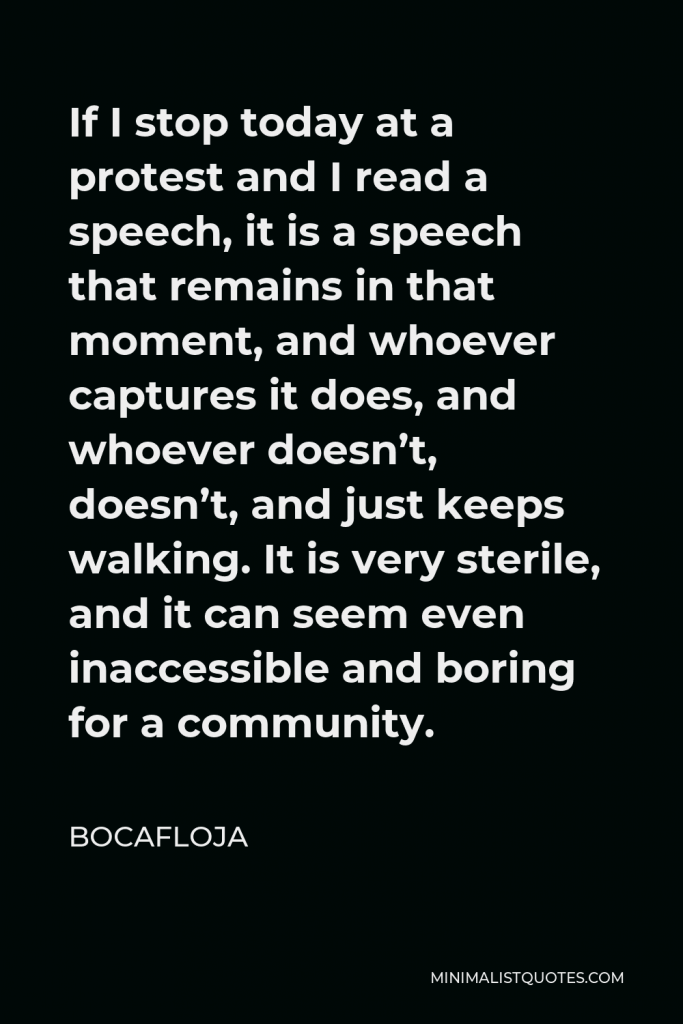

If I stop today at a protest and I read a speech, it is a speech that remains in that moment, and whoever captures it does, and whoever doesn’t, doesn’t, and just keeps walking. It is very sterile, and it can seem even inaccessible and boring for a community.
BOCAFLOJA -





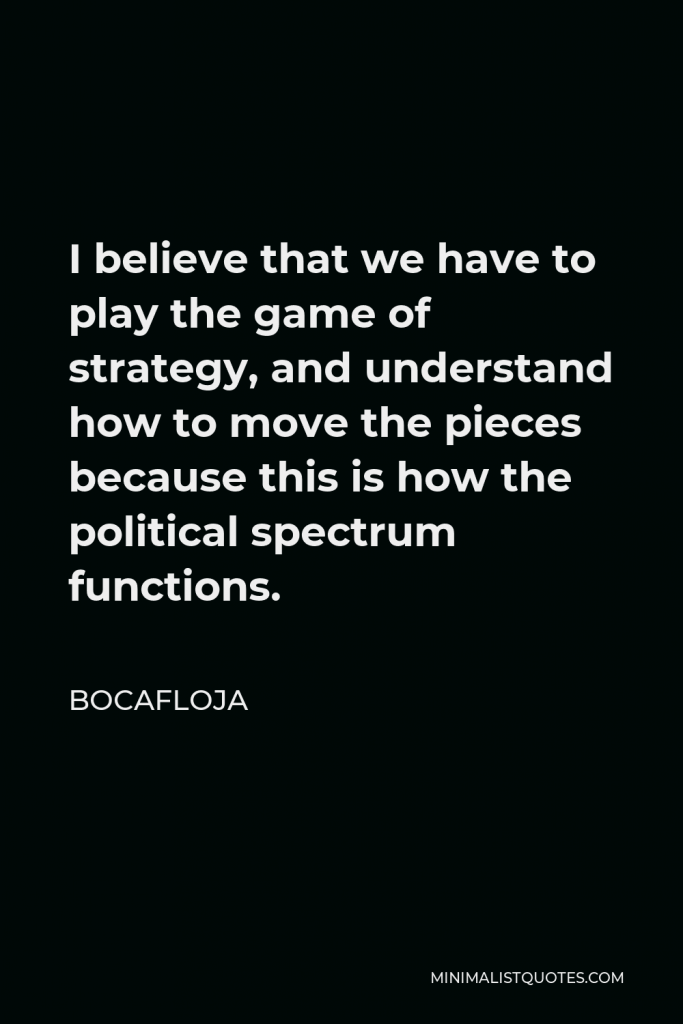

I believe that we have to play the game of strategy, and understand how to move the pieces because this is how the political spectrum functions.
BOCAFLOJA -





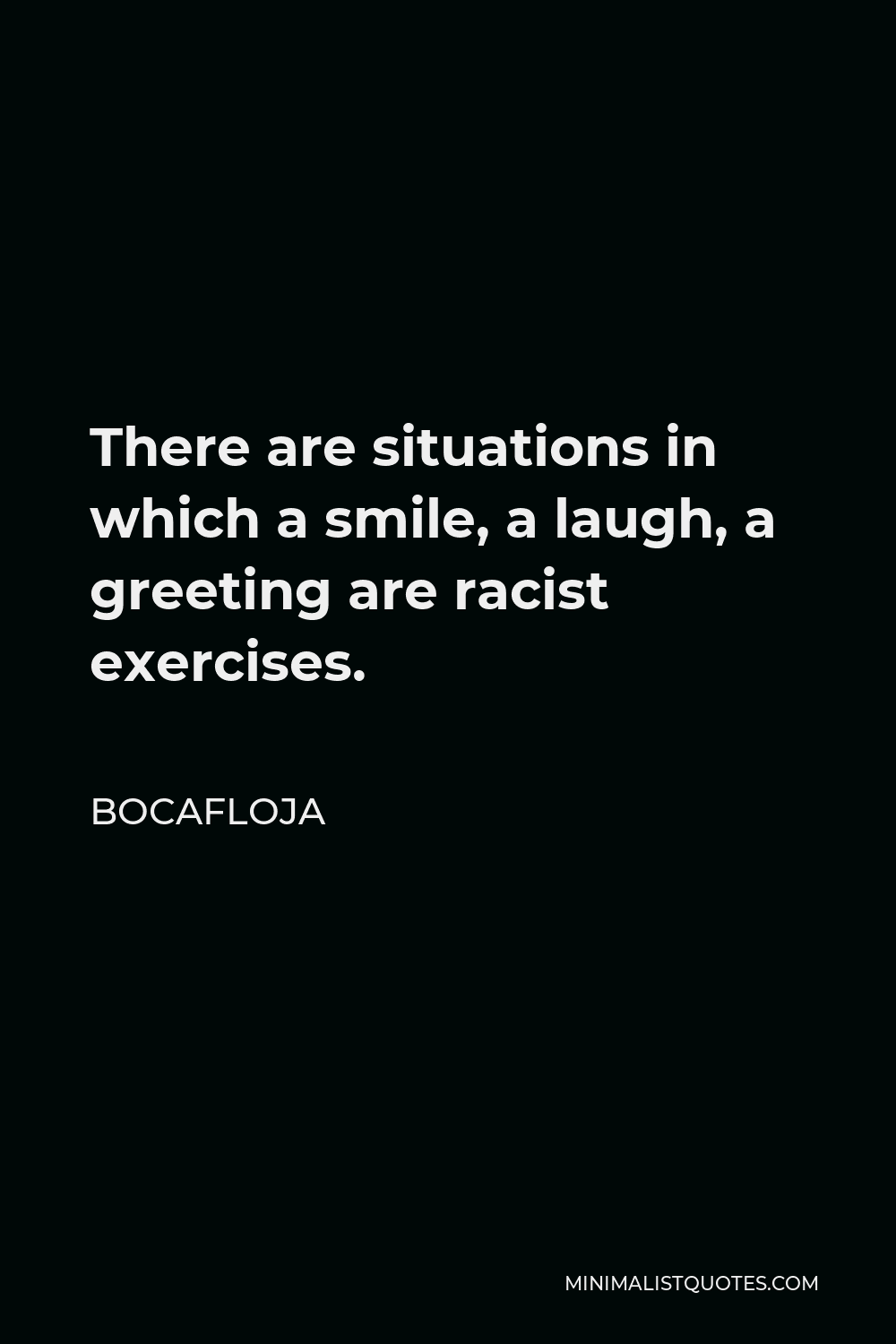
There are situations in which a smile, a laugh, a greeting are racist exercises.
BOCAFLOJA -





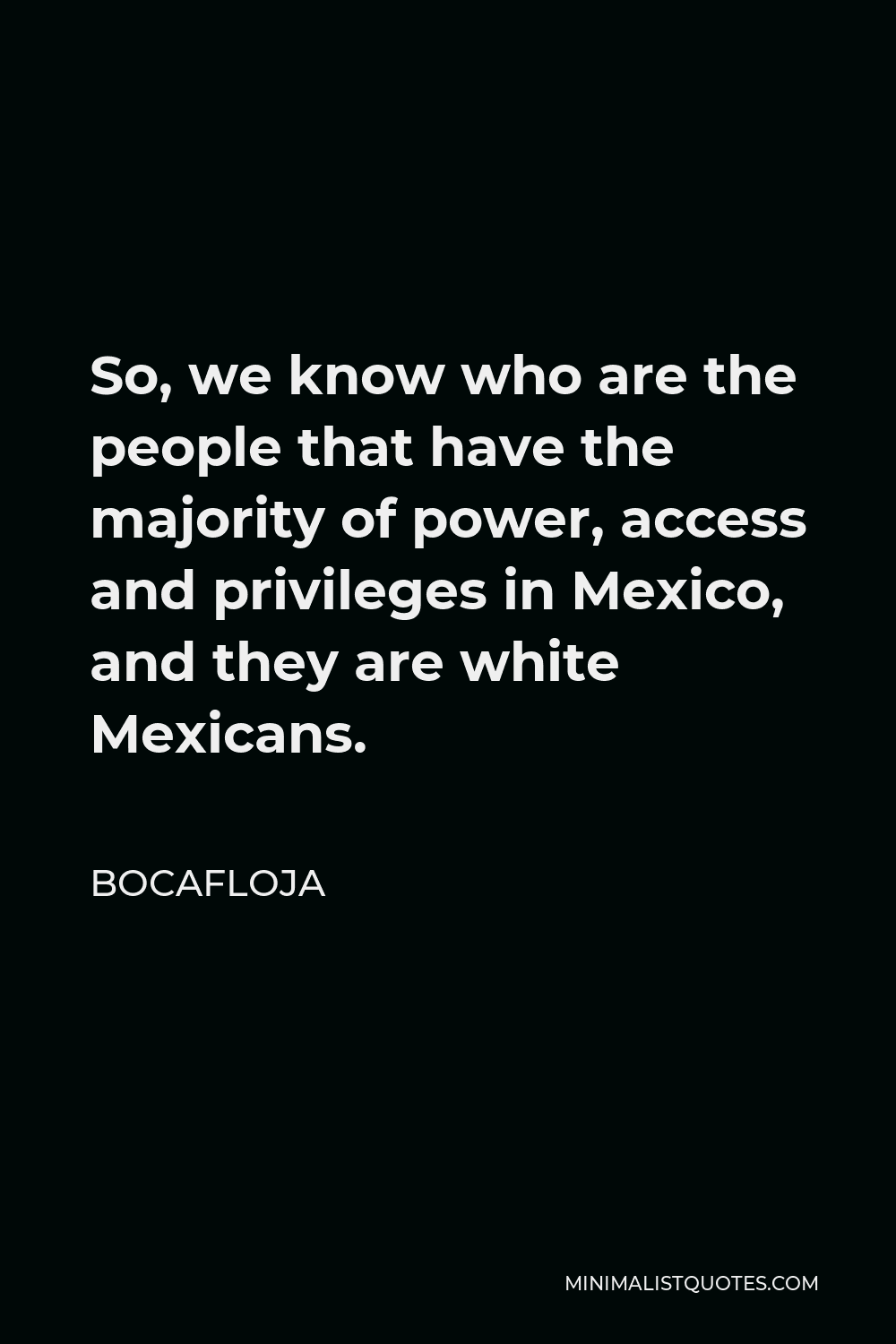
So, we know who are the people that have the majority of power, access and privileges in Mexico, and they are white Mexicans.
BOCAFLOJA
